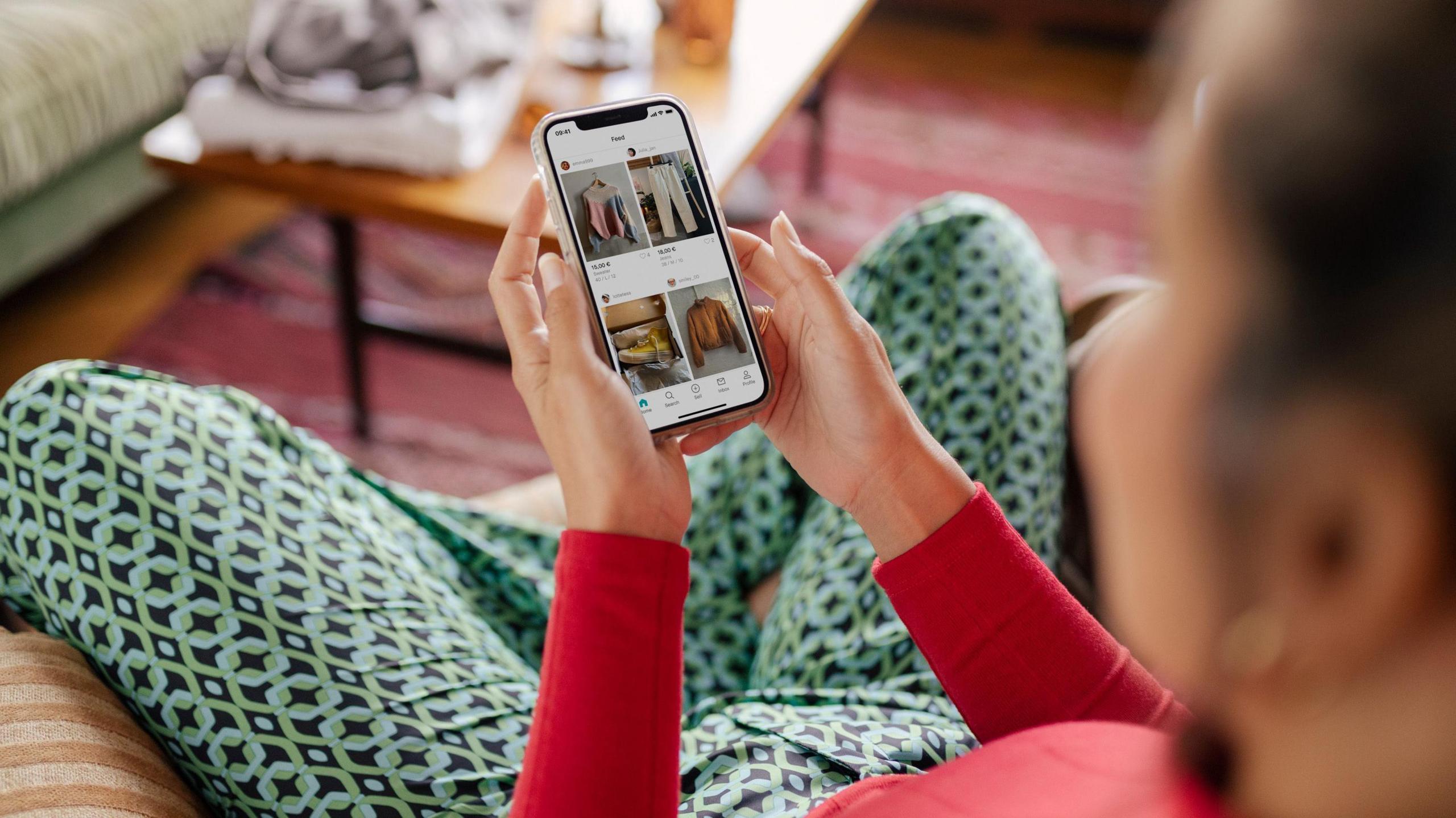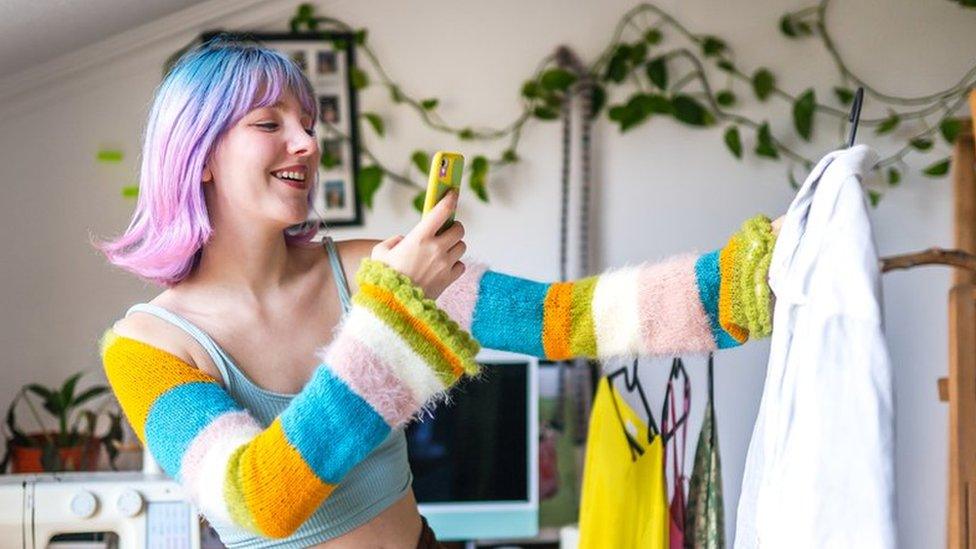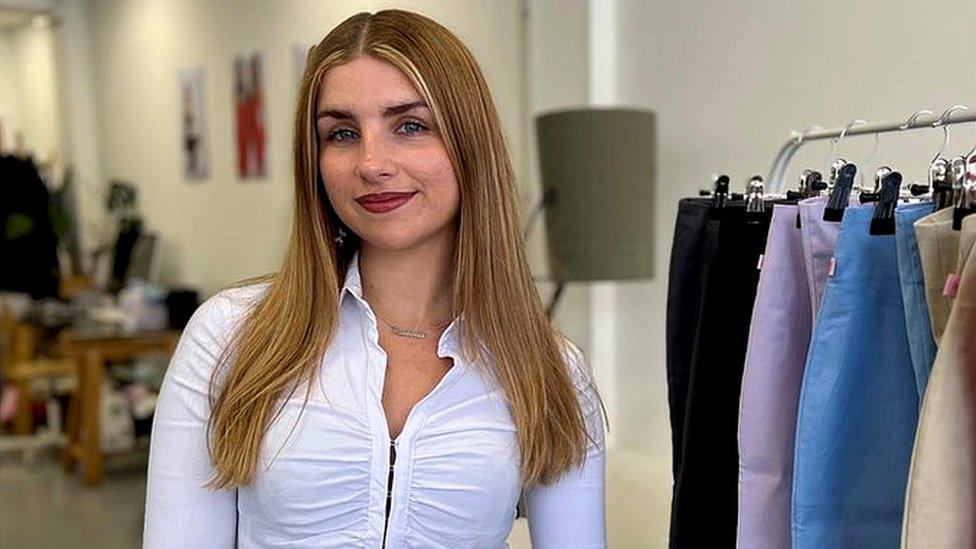Vinted makes first profit on used fashion

- Published
Vinted has made a profit for the first time as the fashion for second-hand clothes remains on trend.
It was a firm "at the forefront of a market with huge potential", its chief executive said.
Digital platforms allowing customers to sell their "pre-loved" items direct to other people have taken off in recent years.
But Vinted, which has expanded rapidly across Europe, is the first out of the red, turning a €20.4m (£17.4m) loss in 2022 into a €17.8m profit.
Thomas Plantenga, Vinted's chief executive, said second-hand fashion remained a "tiny" proportion of the market but that the firm was in a strong position.
As well as expanding into new markets, including Denmark, Finland and Romania, Vinted had also accelerated the development of its delivery service Vinted Go, he said.
“We see many opportunities ahead, so we’ll continue to balance profitability against investment opportunities to accelerate towards our mission,” Mr Plantenga said.
He added that enabling customers to sell to each other would help "mitigate the harm of the fashion industry".
Vinted said revenues, external had jumped 61% to €596.3m (£509m) in 2023 compared with the previous year.
The marketplace acquired a second-hand designer clothes specialist platform, Rebelle in 2022 and has launched a service which verifies the authenticity of valuable items.
Vinted and a similar UK-based platform Depop have both caught on with British shoppers in recent years, eating into eBay's original dominance of the second-hand clothing market, and appealing particularly to younger shoppers.
The cost-of-living crisis, combined with increased awareness of fashion's environmental impact, have helped bolster the trend.
Social media influencers and celebrities have also helped to overhaul associations with musty, out-of-fashion, charity shop stock.
A recent report, external from US-based second-hand retailer ThredUp suggests that the market for used fashion is now worth tens of billions of dollars a year in Asia, North America and Europe.
However the size of the new clothes market, and the trend towards lower quality "fast fashion" products, mean it is hard for second-hand platforms to make a profit.
"In recent years, the likes of Vinted and Depop have ploughed millions into growing their headcount and expanding their audience, as they looked to capitalise on the second-hand trend," said retail analyst Natalie Berg.
"It’s a gamble that seems to have paid off for Vinted. With low prices and no seller fees, its model needs scale which, in turn, will open up alternative revenue streams like advertising."
Vinted, a privately owned firm, said it had expanded its staff by a third. It now has 2,000 employees, most of them in Lithuania.
Related topics
- Published9 January 2024

- Published12 June 2023
